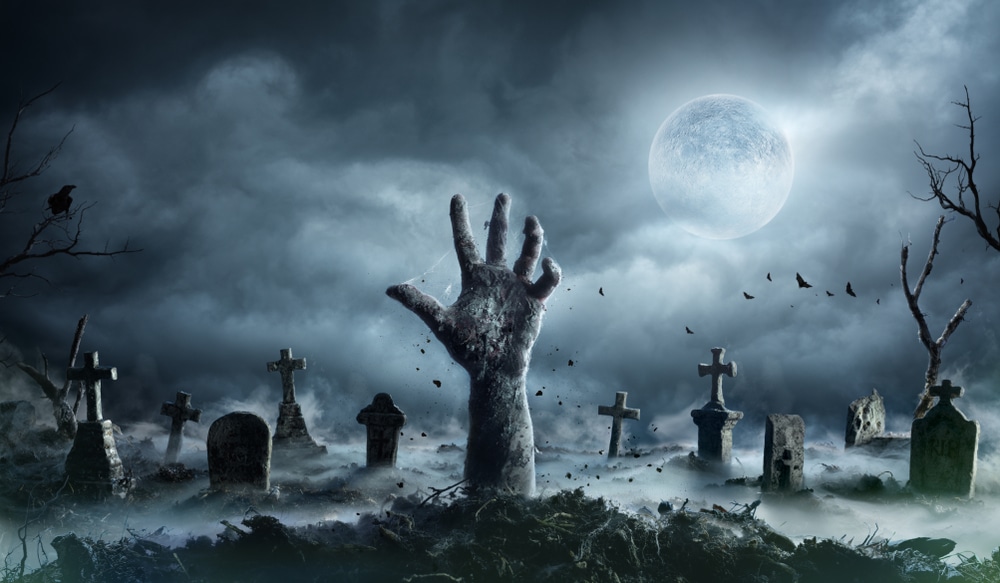Jasmine Birtles
Your money-making expert. Financial journalist, TV and radio personality.

What are zombie banks?
Let’s face it – there is a lot of economic turmoil happening at the moment. Both in the United Kingdom alone and across the globe, there is almost never-ending news of the economy, talks of finances, currencies, and the cost of living. We understand that it can sometimes be easier to ignore the news, switch the television channel over to something more light hearted, and block out the constant, stressful noise.
We do the same from time to time. Even as personal finance experts, the current climate can feel daunting. But there is one aspect of the chaos that is not being covered. It is mentioned briefly from time to time, but never delved into, never discussed in depth. What is this aspect? Zombie banks and businesses.
You may have heard the terms ‘zombie banks’ or ‘zombie businesses’ floating around in recent months. Perhaps it is a totally new concept. But it is something important to be discussed and shared. Once you have read this article, you will not only have a greater understanding of the term but may start to notice it more and more in your everyday life.
A zombie company is a company that is neither ‘dead’, nor ‘alive’. You may often hear banks being referred to as ‘zombie banks’, but it can apply to general businesses and corporations also. Simply put, these companies are those which are in so much debt, any money or revenue made simply goes back into paying off the interest on the debt, not actively reducing the debt itself.
This means there is no spare capacity for the company to invest and therefore grow. The company must cut back as much as possible, thus being unable to employ more staff. However, as the company is not actually losing money, very few redundancies are made and business seems to operate as usual. The company is neither growing, nor failing – it is simply going through the motions of operating day by day.
Although on the surface there does not seem to be any ‘negative’ aspects of a zombie banks and businesses, many economists argue otherwise. In fact, they argue an estimated 150,000 zombie companies take up market shares and use up talent that should be available elsewhere. In other words, they are using up valuable resources and money which could be put towards more dynamic uses.
Statistics also show insolvency rates are 50% below ‘normal’ rates of previous years. The UK government’s Covid-19 rescue plans saved many businesses from insolvency. However, now unemployment may be low, however productivity and expected productivity are also low. Many businesses have become ‘zombies’. They walk through the day to day, with little growth.

In recent years, interest rates have been very low. They have been very low for some time, in fact. Of course, in recent months the Bank of England have announced interest rate rises in order to combat soaring inflation.
Before this, however, interest rate payments on debt were very low and very stable. Companies are able to manage paying off the interest on their debt before it spirals into uncontrollable amounts. As some economists put it, businesses have been able to ‘extend and pretend’. They can extend the amount of time they are in debt, whilst still being able to operate as usual, pretending it isn’t happening.
Another reason is that many banks do not want to call in loans. The financial crisis of 2008, liquidity rules and lending initiatives have changed greatly. This means banks are reluctant to call in loans. In other words, they do not want to demand repayment at any given time, which as lenders, they have the right to do. They will now wait before calling them in, hoping recovering chunks of the loan will be easier to do in the future.
Similarly, HMRC and the government may be reluctant to take action against businesses which have large debts or tax liabilities. Any radical action could exacerbate the situation, delaying further the recovery of any funds owed to them.
If zombie businesses are operating day to day, any sudden and unexcepted changes within the economy could cause irreversible damage. Increased interest rates, as we have seen in recent times, have been named a potential ‘zombie killer’, as the interest on debt grows more rapidly. Decreased demand for goods and services from zombie companies as a result of higher interest also acts as a disadvantage.
However, it is not only negative blows to the financial climate that can impact zombie banks and other businesses. Even improvements in the economy can cause newer, more dynamic companies to take advantage of new opportunities, growing fast and leaving zombie businesses behind.
Zombie banks and zombie businesses are no different from each other, really. When a large number of a bank’s customers are falling into high debt, or failing to repay loans, the bank will also fall into debt. When the value of a bank’s assets is less than the value of its financial liabilities, insolvency is likely to occur.
However, as with zombie businesses, they continue on as normal. Business operations continue day to day, and banks even continue to lend to customers and businesses. By continuing this way, banks are relying on the financial health of its customers to improve. This will then improve their financial situation.
Simply put, a zombie bank is a bank that is practically insolvent, yet continues to exist through the hiding of bad loans on their balance sheets, continuing operations, and rolling over bad loans time and time again, instead of writing them off.
This is a huge gamble, of course, and this so called ‘zombie lending’ could have detrimental impacts down the line. In fact, banks could go bankrupt as a result. In the video below, our founder and CEO Jasmine Birtles discusses zombie banks, and how many banks survived the financial crisis of 2008.
